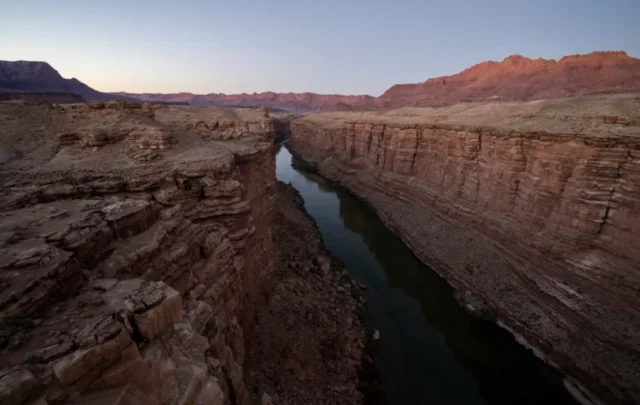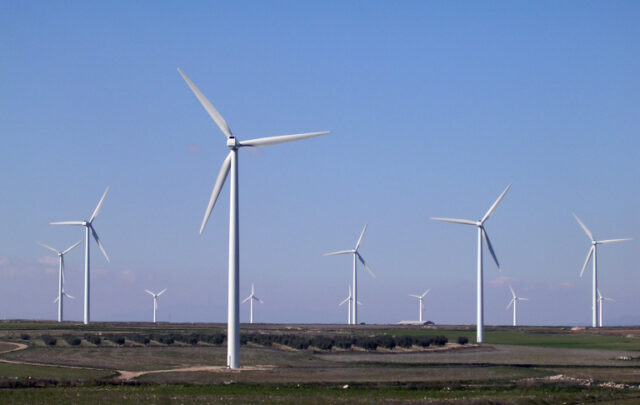MOSCOW – Russia is moving towards building new geopolitical muscle based on its huge oil and gas riches: this week Moscow conceded that its policy, notably in the Middle East, has been strongly connected with energy considerations.
“The situation in the Middle East influences the world economy, notably one sector in which Russia holds a special position, the energy sector. This and many other things determine our proactive approach in the Middle East,” Russian President Vladimir Putin said after talks with visiting Palestinian leader Mahmud Abbas on January 31. In response, Abbas told Putin that Russia has a key role to play in the Middle East.
Russia, the world’s No 2 oil producer, sits on some of the biggest untapped oil and gas fields in the world. No big wonder that Moscow closely monitors developments in the Middle East, which accounts for roughly two thirds of the world’s crude reserves, as any kind of transformation there could change the global oil business landscape.
In its recent Middle East dealings, Russia’s emerging hydrocarbon-based geopolitical muscle featured prominently. For instance, Russia and Syria are considering signing agreements allowing Russian companies to join oil and gas projects, including development of known reserves and constructing several pipelines, including the Syrian portion of a Pan-Arab pipeline project.
As the new rush for crude gains momentum, Moscow is keen to play a role in the Middle East. Former prime minister Yevgeny Primakov, now head of Russia’s Chamber of Commerce and Trade, is to visit Lebanon, Syria, Jordan and Iran February 6-13. The current political situation could not be more favorable for the development of economic cooperation between Russia and the Middle East, Primakov said last week. With the backdrop of Chinese competition for world oil supplies, notably deals in Iran and elsewhere, Moscow will keep a keen eye on the region.
In East Asia, Moscow’s policies have been increasingly connected with the oil and gas game. Notably, the long saga of Russia’s Pacific oil pipeline came as an example that there was a lot more at play than a mere commercial transaction.
Chinese banks provided a US$6 billion loan to support state-owned Rosneft’s $9.3 billion acquisition of Yukos unit Yuganskneftegaz, Finance Minister Alexei Kudrin said on February 1. Kudrin told a news conference that state-owned Vneshekonombank was borrowing “$6 billion from Chinese banks to lend to Rosneft”. The Chinese bank loan is seen as aimed at securing long-term oil supplies from Rosneft.
Yuganskneftegaz was put up for auction in December to recoup some of Yukos’ $27.5 billion back-tax bill. The sale was the culmination of a Kremlin campaign to regain control over the strategic oil sector it lost in the chaotic privatization’s of the mid-1990s.
Federal Energy Agency chief Sergei Oganesyan, who was a vice president at Rosneft until his appointment to the Federal Energy Agency last March, confirmed on February 1 that Rosneft had secured $6 billion in financing from China National Petroleum Corp (CNPC) backed by future oil supplies until 2010. “The two companies have agreed on the prepayment for long-term oil deliveries,” he said.
Last December, Russia’s Industry and Energy Minister Viktor Khristenko publicly offered CNPC to take a 20% stake in Yuganskneftegaz.
Furthermore, on January 26, Russia’s Transneft pipeline monopoly said it had started to plan the construction of a pipeline from the Siberian oil fields to the Sea of Japan, with another branch leading to China. Transneft head Simon Vainshtock told Putin that the first branch of the pipeline would run from Taishet in Siberia’s Irkutsk region to the town of Skovorodino, only 70 kilometers north of the Chinese border. Transneft has until May to present a feasibility study for the pipeline.
Russia now has only a vague commitment to build a branch from the Japanese pipeline to China by 2020. Moscow officials have hinted that Beijing would have to come up with the financing if it wanted the oil, hence an option for a Chinese branch still remains.
It’s hardly a coincidence that Chinese state councilor Tang Jiaxuan is visiting Russia for four days this week, officially for “consultations on bilateral relations and major issues of common concern”. Future long-term oil supplies from Russia definitely constitute a major matter of bilateral concern.
Currently, China receives all its Russian oil by rail, although it’s more expensive than piping it. On February 1, state-run Rosneft reportedly started delivering oil to China by rail, up to 200,000 tons this month. This year, crude deliveries by rail are expected to reach an overall figure of 4 million tonnes, and 15 million tonnes in 2006.
Last December, despite pledges of “strategic energy partnership” with China, Moscow approved the Japan-bound East Siberia-Pacific oil pipeline. The December 31 announcement mentioned no China-bound branches of the future pipeline.
Tokyo has been lobbying for an oil pipeline route to the Pacific. To back up its lobbying, Japan reportedly promised billions of dollars in funding of the pipeline. Japan is understood to have offered to fund the construction of the pipeline, giving Russia full control. Hence fewer strings seem to be attached and Russia would not be forced to sell its crude to Japan only.
Compared to this, China has just promised to provide funds for constructing part of the pipeline that is connected directly to the Chinese city of Daqing. Furthermore, China would own the pipeline in its territory and was supposed to become an exclusive buyer of the oil from the pipeline.
Financing for the Japanese branch also remains unclear. In mid-January, the Russian government announced it would not guarantee any loans for the project and would seek cheap domestic and foreign loans to build the pipeline.
The Japan-bound route is seen as a strategic asset for Russia, allowing it to funnel crude not only to Japan, but to Korea, Indonesia, Australia and the US West Coast as well. Yet despite Japan’s tactical victory in the Siberian pipeline game, Russia will not surrender its core geopolitical interests in exchange for long-term access to Japanese markets.
For instance, on February 1, Prime Minister Junichiro Koizumi said Japan would reject any offer by Russia to return only two of four disputed Kuril islands. “Japan has never agreed to accept a partial return and we will not accept it in the future,”‘ Koizumi said.
Moscow lost no time to snub Japan’s insistence on the return of all islands. Also on February 1, Russia’s Natural Resources Ministry happened to release a statement on developing Russian territories of “special geopolitical importance”. “The Southern Kuril Islands are among these territories,” the ministry’s statement said. According to the ministry’s estimates, there could be up to 360 million tonnes of oil reserves beneath and around the disputed islands. “The ministry views exploration and mining in the Southern Kuril Islands as fully corresponding with Russia’s geopolitical interests,” the statement said.
In other words, Moscow would rather pump and sell its oil rather then surrender potentially oil-rich areas.
Sergei Blagov covers Russia and post-Soviet states, with special attention to Asia-related issues. He has contributed to Asia Times Online since1996. Between 1983 and 1997, he was based in Southeast Asia. In 2001 and 2002, Nova Science Publishers, NY, published two of his books on Vietnamese history.
(Copyright 2005 Asia Times Online Ltd. All rights reserved. Please contact us for information on sales, syndication and republishing.)





